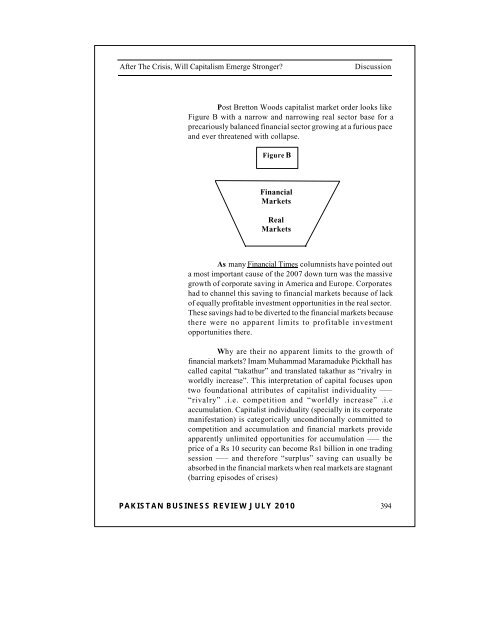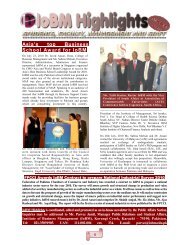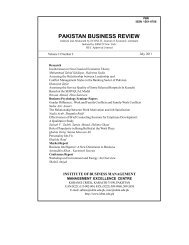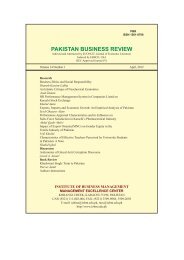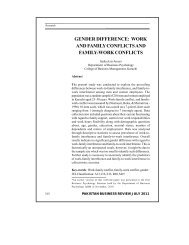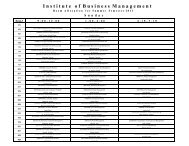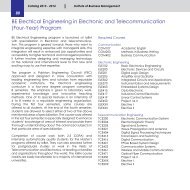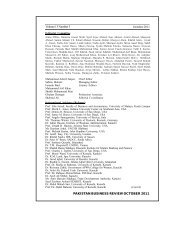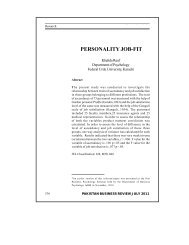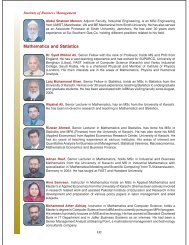Complete Volume - Institute of Business Management
Complete Volume - Institute of Business Management
Complete Volume - Institute of Business Management
You also want an ePaper? Increase the reach of your titles
YUMPU automatically turns print PDFs into web optimized ePapers that Google loves.
After The Crisis, Will Capitalism Emerge Stronger?<br />
Discussion<br />
Post Bretton Woods capitalist market order looks like<br />
Figure B with a narrow and narrowing real sector base for a<br />
precariously balanced financial sector growing at a furious pace<br />
and ever threatened with collapse.<br />
Figure B<br />
Financial<br />
Markets<br />
Real<br />
Markets<br />
As many Financial Times columnists have pointed out<br />
a most important cause <strong>of</strong> the 2007 down turn was the massive<br />
growth <strong>of</strong> corporate saving in America and Europe. Corporates<br />
had to channel this saving to financial markets because <strong>of</strong> lack<br />
<strong>of</strong> equally pr<strong>of</strong>itable investment opportunities in the real sector.<br />
These savings had to be diverted to the financial markets because<br />
there were no apparent limits to pr<strong>of</strong>itable investment<br />
opportunities there.<br />
Why are their no apparent limits to the growth <strong>of</strong><br />
financial markets? Imam Muhammad Maramaduke Pickthall has<br />
called capital “takathur” and translated takathur as “rivalry in<br />
worldly increase”. This interpretation <strong>of</strong> capital focuses upon<br />
two foundational attributes <strong>of</strong> capitalist individuality –––<br />
“rivalry” .i.e. competition and “worldly increase” .i.e<br />
accumulation. Capitalist individuality (specially in its corporate<br />
manifestation) is categorically unconditionally committed to<br />
competition and accumulation and financial markets provide<br />
apparently unlimited opportunities for accumulation ––– the<br />
price <strong>of</strong> a Rs 10 security can become Rs1 billion in one trading<br />
session ––– and therefore “surplus” saving can usually be<br />
absorbed in the financial markets when real markets are stagnant<br />
(barring episodes <strong>of</strong> crises)<br />
PAKISTAN BUSINESS REVIEW JULY 2010<br />
394


